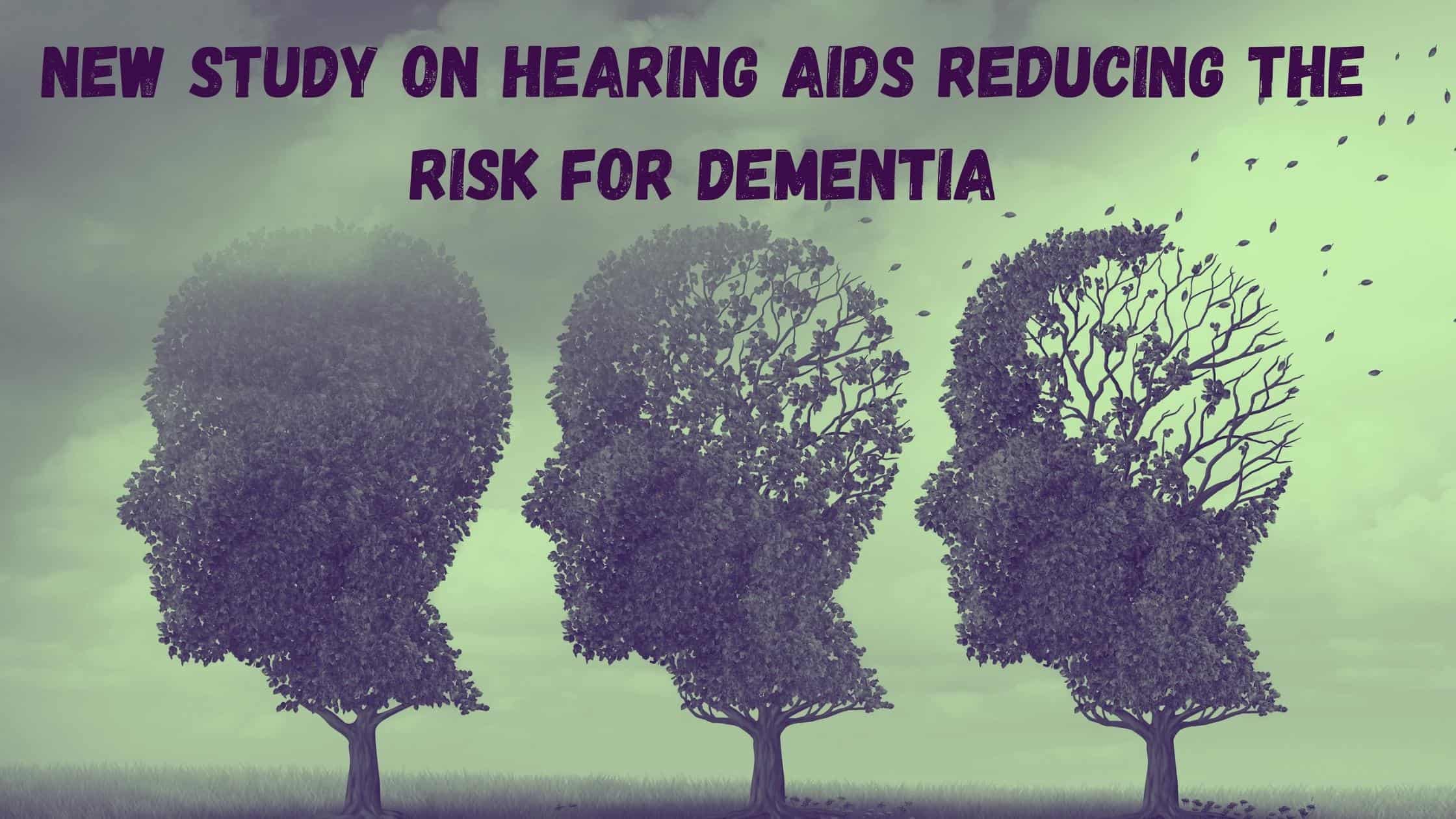
Wearing hearing aids has great benefits. Hearing devices help you follow conversations, enjoy social events, and feel more confident. You won’t need to ask people to repeat themselves, or pretend you’ve heard what someone said. Hearing aids help you hear clearly during every conversation. Consistently wearing hearing aids is also linked to improved cognitive abilities, such a better memory and improved focus and concentration.
Treating hearing loss with hearing aids can even slow the progression of dementia. A new study published in February 2021 shows that wearing hearing aids reduces the risk of developing dementia, as well as slowing the development of symptoms.
New Study Sheds Light on the Role of Hearing Aids
This recent study was published in the Alzheimer’s & Dementia: Translational Research & Clinical Interventions journal on behalf of the Alzheimer’s Association. Researchers from the UK collected data from over 2,100 older adults with dementia. The database included information gathered from participants every year between 2005 and 2018. After an in depth look at the data, researchers concluded that:
- Older adults can often have both hearing loss and dementia.
- Consistent hearing aid use lowers the risk of dementia.
- Wearing hearing aids slows cognitive decline.
Untreated Hearing Loss and Your Life
Hearing loss affects every area of your life. Untreated hearing loss has social, emotional, and mental consequences, but many older adults don’t know about these risks.
Social risks of untreated hearing loss: Untreated hearing loss can isolate you from your family and friends. Hearing loss makes it challenging to follow conversations, share inside jokes, and maintain close relationships with your loved ones. Hearing loss also makes it much harder to hear in places with background noise. If you’re not wearing hearing aids, you’ll find all that background noise overwhelming. You may often choose to stay at home and avoid meeting with friends. Untreated hearing loss leads to major changes in your social life, often causing social isolation and loneliness.
Emotional risks of untreated hearing loss: Our connection with family and friends brings us joy, meaning, and a sense of purpose. As you get older you know that your loved ones really are the most important part of your life. Sadly, untreated hearing interferes with communication, and makes it hard to connect with our loved ones. This can lead to anxiety, stress, and even depression.
Physical risks of untreated hearing loss: Untreated hearing loss affects your physical health as well. When you struggle to hear the sound around you, it’s difficult to pinpoint sounds in your surroundings. This can make you feel less safe outside and will even increase your risk of a fall or injury.
Untreated hearing loss and dementia: The devastating effects of untreated hearing loss don’t stop there. This recent study shows that untreated hearing loss affects your brain in profound ways. Untreated hearing loss increases your risk of developing dementia, and leads to rapid cognitive decline.
Treating Hearing Loss and Reducing the Risk of Dementia
There’s currently no cure for dementia, and no medication that will slow the disease. However, there are behavioral and lifestyle changes that can reduce the risk of dementia. This includes eating a healthy diet, managing any medical conditions such as diabetes, and getting physical exercise.
The 2021 study shows that treating hearing loss has a positive effect on your brain. It can reduce the risk of developing dementia, as well as slowing cognitive decline. Treating hearing loss helps you maintain your memory, focus on tasks, and always find the word you’re looking for.
Treating Hearing Loss
Did you know that wearing hearing aids reduces your risk of dementia? Now that you know the connection between hearing loss and dementia, don’t put off treating hearing loss! Wearing hearing aids is the best thing you can do for your brain, as well as your overall health and well-being.
Treating hearing loss with quality hearing aids improves communication and makes it easy to connect with the people you love the most. Hearing aids also reduce cognitive strain, give you a clear auditory picture of your environment, and keep you safe. Schedule an appointment with our hearing health professionals to explore your hearing aid options, and discover the hearing aids that will match your budget, lifestyle, and hearing needs.
